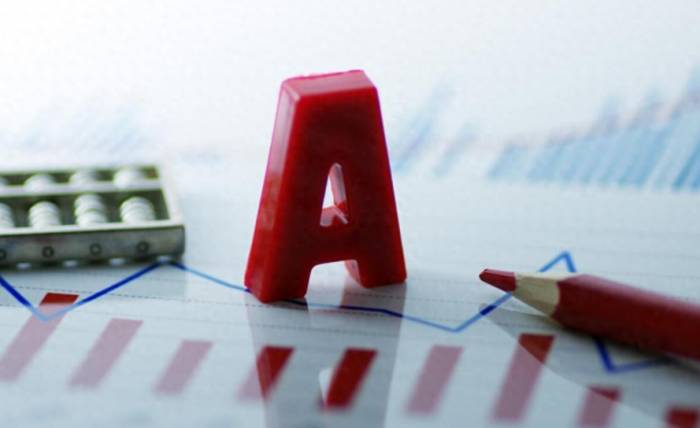Translation in English: Unexpected positive news! A-shares make a deep V-shaped
Yesterday, we mentioned that the recent weakness in the A-share market is mainly due to the concentration of short-term risks and long-term issues. The macroeconomic data such as CPI and social financing in April had already dampened market sentiment. In the past two weeks, issues like population concerns, youth unemployment, and local debt have been fermenting. Some medium to long-term trends have erupted in the short term, and the discussion of a "balance sheet" recession in the Japanese style has been brought up again. Pessimistic grand narratives are comprehensively suppressing the market, and market confidence has been shattered.
It is no longer a simple matter of trading a weak recovery; there are even funds trading on a recession. The yield on China's 10-year government bonds has fallen to 2.7%, and some cyclical commodity futures such as steel and soda ash have seen consecutive sharp declines. The real estate sector in the A-share market has fallen for more than ten consecutive trading days, and many consumer sectors have also fallen back to last year's levels. Even Li Bei has suffered significant losses due to her bullish stance on the real estate chain.
Adding insult to injury, while the domestic economy is pessimistic, the external market is also causing trouble. The stalemate over the U.S. debt ceiling has not been broken for a long time. It has been four months since the U.S. government debt reached the legal limit of $31.4 trillion. According to the deadline warned by Treasury Secretary Yellen, which is June 1st, the U.S. debt default has entered a "countdown."
Due to the increased risk of U.S. debt default, U.S. Treasury yields have soared, which has widened the interest rate differential between China and the U.S., further increasing the pressure on the depreciation of the renminbi. This week, the renminbi exchange rate broke through 7, and today's offshore renminbi exchange rate broke through 7.08, setting a new low. The U.S. debt default is also reflected in the suppression of market risk appetite. Although it is likely to be a false alarm, some funds will still reduce their positions for risk aversion.
Under the pressure of many negative factors, market sentiment is relatively low. Pessimistic expectations for economic recovery and the depreciation of the renminbi are shaking foreign capital's confidence in A-shares. In addition, with the Hong Kong stock market closed tomorrow, Northbound capital has sold a net of 9.562 billion today, with a net sale of over 22 billion in the past three trading days. It can be said that foreign capital is the "culprit" of the recent market sell-off.
Confidence is more precious than gold. In April and October of last year, and now, the A-share market has collapsed three times within a year due to insufficient confidence. The two times last year were directly reversed by important meetings that changed market expectations. But the problem now is that there may not be a meeting in the short term. Fortunately, the market liquidity is very abundant. If the A-share market falls and presents opportunities under the "asset shortage," it is believed that funds will enter.
Looking at today's stock market, after the U.S. stock market closed last night, Nvidia announced its first-quarter earnings. Due to the strong growth in data center business, Nvidia's second-quarter revenue guidance far exceeded expectations. Nvidia's share price increased by nearly 30% after the market closed, which directly confirmed the prosperity of AI.Big brother is so supportive, the A-share CPO sector is already mentally at its upper limit in the hearts of stock investors, but as we mentioned earlier, the market sentiment is too weak. The computing power-related sectors opened high in the morning but then dived directly. Fortunately, they rebounded at the end of the day, with Tianfu Communication and Cambridge Technology hitting the daily limit.
By the close, the Shanghai Composite Index fell by 0.11%, and the ChiNext Index slightly dropped by 0.05%. The total turnover of the two markets slightly increased to 0.85 trillion.
Looking at the sectors, communications, public utilities, power equipment, defense military, and electronics were leading the gains, while media, agriculture, forestry, animal husbandry, retail trade, coal, and non-ferrous metals were leading the losses.
Lastly, what we want to say is that today's deep V in the A-shares does not mean a reversal has occurred. The A-shares need to address the issue of confidence. A reversal requires new expectations, whether it's economic recovery, confirmation of AI prosperity, or a Federal Reserve rate cut. The U.S. debt ceiling has not been resolved yet, and risks should still be considered this week. Looking into the future, if no policies are introduced, the weak domestic economy will not change. The real big opportunities may have to wait for a Federal Reserve rate cut, so that the central bank has more room for maneuver.






























Comments